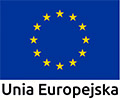On April 20, 2023, the Treblinka Museum was visited by Mrs. Halina Birenbaum, a Holocaust survivor, Polish-Israeli writer, poet and translator. She was born on September 15, 1929. During World War II, she was imprisoned in the Warsaw Ghetto, the German concentration camp in Majdanek, Auschwitz-Birkenau, Ravensbrück and Neustadt-Glewe. In 1947, Mrs. Halina emigrated to Israel, where she started a family and lives to this day.
During numerous meetings around the world, Halina Birenbaum promotes the difficult history of World War II and the Holocaust. She talks about Treblinka in her poetry. She is the author of the books: “Hope is the last to die” (Nadzieja umiera ostatnia), 1967, “Return to ancestors’land” (Powrót do ziemi praojców), 1991, “Scream for remembrance” (Wołanie o pamięć),1999, “Far and near echoes. Meetings with young people” (Echa dalekie i bliskie. Spotkania z młodzieżą), 2001,” Life is dear to everyone” (Życie każdemu drogie), 2005, “It’s not the rain, it’s people” (To nie deszcz, to ludzie), 2019, “From the history of my life after the Holocaust. Memories” (2022). She also writes poetry: “Even when I laugh” (Nawet gdy się śmieję), “Not about flowers” (Nie o Kwiatach), “Words cannot convey” (Jak można w słowach) “My life started from the end” (2010). In 1999, she was awarded the Officer’s Cross of the Order of Polonia Restituta. In 2001, she received the title “Person of Reconciliation”. In 2018 she became an honorary citizen of the Capital City of Warsaw.
Using the beautiful language of literature and poetry, she popularizes the history of the German Treblinka II Death Camp. Mrs. Halina Birenbaum supports the activities of the Treblinka Museum on the international forum with a great commitment.
During the visit she was accompanied by her younger son Beni, who has visited Poland for the first time. Among the guests there were also representatives of the “Memory of Treblinka” Foundation, Ewa Teleżyńska-Sawicka and Paweł Sawicki; Monika Tutak-Goll, the author of an interview with Mrs. Halina published in the book entitled “It’s not rain, it’s people”; Marek Fiuk, the designer of the “Meritorious for the Treblinka Museum” medal. The meeting with Mrs. Halina was attended by youth and teachers from School Complex in Kosów Lacki (Poland) along with the Director Hanna Przesmycka and students from Stanislaw Staszic School Complex in Małkinia Górna (Poland) together with Mr. Wojciech Hadała.
The director of the Museum, Dr. Edward Kopówka, presented Mrs. Halina Birenbaum with the “Meritorious for the Treblinka Museum” medal. The motto engraved on the obverse of this medal are her words: “Teaching about the Holocaust is teaching about humanity”. The director also read a poem “Journey” by Mrs. Halina Birenbaum, written on October 28, 2021. This poem was included in the post-conference publication “Treblinka – ostrzega i przypomina!” (Treblinka warns and reminds!). The gathered guests listened to three songs performed by Witold Radomski, a resident of Kosów Lacki, a physical education teacher at the Primary School in Kosów Lacki, a social and cultural activist. He performed the poem “Go and visit Treblinka”, which was written after Halina’s return from Poland in September 1986. The poem was originally written in Hebrew. Halina mostly writes her poems in Polish and then translates them into Hebrew. The poem “Do you see me, mom?” written in April 1983 and “Thank you for love” from March 1985 also were musically performed. These three works come from the book of poems “Even when I laugh”. The next two poems were read by Ilona Flażyńska from the research and publishing department of the Treblinka Museum. These were the poems: “In those times”, written on March 12, 1983 from the book of poems “Even when I laugh”, and the poem “With myself from myself about myself” from Halina’s latest book entitled “From the history of my life after the Holocaust. Memories”.
Halina told about her experiences related to the occupation, the Warsaw Ghetto and Treblinka. She talked about her family and how she remembers her father, who died in Treblinka. She also spoke about her relationship with her mother and about her experiences in concentration camps. The gathered people learned how come that Mrs. Halina started writing. She told the history of when she found a pencil at Majdanek and decided to describe the arrival of a transport to the camp on a piece of cement sack. She said that she was doing better in her life, when she wrote. Another incentive was the trial of one of the leading war criminals, Eichmann, in Jerusalem in 1961. During it, everyone, i.e. judges and radio broadcasters, focused on the technical and logistical matters of the Holocaust. Mrs. Halina asked herself: “Where are the feelings we were experiencing then?” Only since then she became brave enough to speak openly about her experiences. She told about the difficult time when she had raise her children without a family that could support her. Mrs. Halina willingly and very interestingly answered a number of questions. After a short rest, she went to the area commemorating the Treblinka II Death Camp. At the central monument, she met Jewish youth from Panama, who were reading her poem “Go and visit Treblinka”. Young people were taking part in the “March of the Living”. When they found out that there was such an extraordinary person among them, they asked her for a few words. Halina willingly devoted her time to them. The young people listened to her with great interest and emotion. They were very happy that they could meet a witness of history so close to them.
Halina Birenbaum paid tribute to the victims murdered in the camp by laying flowers. She was accompanied by the Director of the Museum Dr. Edward Kopówka, who lit a candle. We would like to express our gratitude to Mrs. Halina for devoting her time to meet with us at the Treblinka Museum.
We wish you a lot of health and success in your personal and artistic life.





